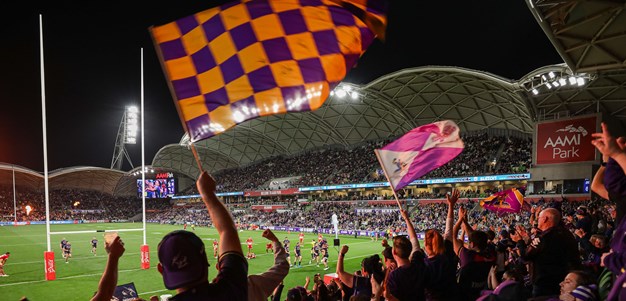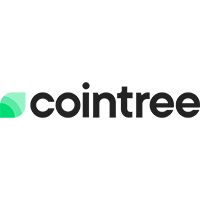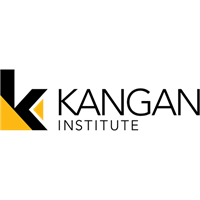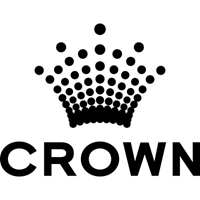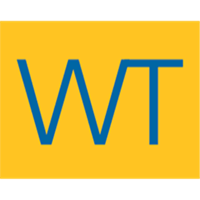
Women of Storm: As a part of National Reconciliation Week, melbournestorm.com.au sat down with Indigenous School to Work Program Coordinator Lyndall Down about her role, the importance of empowering Indigenous communities and what Reconciliation Week really means.
Bringing with her an infectious personality that often lights up the Storm office of a morning, Lyndall Down found her way to AAMI Park in 2015 as the Club joined 10 others across the competition in implementing the NRL School to Work program.
A program supporting Aboriginal and Torres Strait Islander students, School to Work is one that touches a lot of areas close to Lyndall’s heart.
“I've always been really interested in learning more about Aboriginal culture since I was a young child.” Lyndall shared, smiling.
“I worked at Carlton Football Club for seven years in player welfare and during that time I developed a strong relationship with the Aboriginal boys there which was almost instantaneous, and it's still there to this day which I'm really grateful for.
To develop a relationship with those boys really gave me an insight into their culture, and they taught me so much and shared their stories with me. I was really privileged to have the opportunity to learn in that capacity.
“When I left, I really wanted to immerse myself in the community and learn more, so I worked in Aboriginal employment services. That's where I really learnt a lot about people, the history of our country and the atrocities that Aboriginal people have faced here.”
The program is now a huge part of the work Melbourne Storm does within the Aboriginal community and is part of rugby league’s mission to help drive the Australian Government’s key ‘Closing the Gap’ targets for Aboriginal and Torres Strait Islander students.
Now entering its 10th year, The School to Work program is aimed at students in Years 11 and 12 and hopes to support them in identifying what career pathway they would like to follow or further education they would like to undertake.
It utilises the positive profile of the game of rugby league to support and encourage young Indigenous students to complete their schooling and transition into further education and employment.
As a non-Indigenous woman, Lyndall truly commits herself to learning the culture of Aboriginal and Torres Strait Islanders to allow herself to be the best form of support for communities. The best way to learn she says, is to simply listen.
Her approach, alongside her friendly and welcoming nature, has seen her form deep friendships and community with not just the Indigenous students she works with daily, but also each of the Aboriginal and Torres Strait Islander players that come through the Club’s doors.
“The relationship that I've had, and still have, with the players here at Storm - I'm really grateful for that,” Lyndall explained.
“Joshy (Josh Addo-Carr), who brings so much energy and passion, is so proud of his culture, and strong on his identity it is so infectious to be around.

“I always just felt so humbled and extremely privileged for him to want to share that with me.
“Then Nicho Hynes, I'll start getting a bit emotional talking about Nicho but, I just love his friendship, his journey here, and to see where he's going, and what he is achieving is an absolute credit to him. He deserves every success. He has such a good heart”.
She goes on to share that community is innate in the hearts of Indigenous mob. It is not a want, but a need to be surrounded by those you trust and hold dear – a characteristic that Lyndall has helped foster for the Storm Coles First Nations Pathway Program recipients Ammaron “AJ” Gudgeon and Seamus King-Smith.
Moving away from their family, community, and culture to pursue their dream to play rugby league at the highest level, Lyndall has seen the two youngsters flourish in the Storm system.
“To see two young Aboriginal and Torres Strait Islander players come into our club, I'm completely blown away by the resilience and the strength and the courage they have.” Lyndall explained.
“To leave their culture, their communities and to come down to such a vastly different place - and Melbourne has the smallest population of Aboriginal people here in Australia - and be in an elite environment such as Melbourne Storm, you don't really know what you're getting yourself in for.
“To not have the support of family around them, and their culture is so community and family focused, it’s a big step. It's a really big unknown for them walking into an elite club like Melbourne Storm”.

“So, to be able to support those players as much as I can and to see their development, their growth and see them achieving their goals, it's pretty amazing to watch.”
Grinning as she speaks, Lyndall is truly in awe of the players and their resilience. You can feel the gratitude emanating as she speaks about playing a small part in each player's careers and lives.
Alongside her advocating for and working in majorly underrepresented areas within Indigenous communities, Lyndall also has a strong female presence sitting within a heavily male-dominated industry.
Unapologetic in her approach, Lyndall shares it wasn’t always easy and, in her words, privileged experience to get to where she is now. Having started her sports industry career at the Carlton Football Club sponsorship department, Lyndall describes a ‘lightbulb moment’ upon realising she could utilise her relationship with the players and move into a welfare role.
“I learned a lot in that role, not only professionally but personally.” Lyndall opened with.
“Just how a football Club works, how a football department works, and being the only female in that department.
“It had its challenges but I'm so grateful for them because it's really shaped me into being the professional, strong woman that I am.
“Women need to really go for opportunities they want to pursue, and not hold back. Back yourself in and go for it. When I started, I didn’t even know there was a player development space, and it doesn’t just have to be the HR department or receptionist – those days are well and truly gone”.
We, as women, have a lot to offer in these areas. We bring a different side to sport, we have different ideas, and I think that's refreshing and I think needed.
“I feel like having a woman in this area is important to ensure the players feel there is someone they can talk to freely and there's no shame in saying that they're struggling.
“Also, it is important to have diversity within the football department, someone players can turn to and feel comfortable in and feel understood. Having diversity is important as the players need to feel supported, heard, and respected by having someone they can relate to. This can only benefit the players but also the whole club, and for that, you get a greater outcome.
“I love working in the male space, hopefully, it paves a way for other females to get involved and be a part of it because it’s a great industry to be in. It's exciting and so rewarding.
“I think it's about creating pathways and opportunities for women and supporting one another to get there. We definitely need more equality, and it's not just in numbers, it's about having the opportunities for women to be in the area that they want to be in and be respected for the work we do and the experience we give. despite gender.”
Being a non-Indigenous Australian working within the Aboriginal community, Down talks about National Reconciliation Week and the awareness it brings to take responsibility for all Australians to further educate ourselves, not only as a nation or a Club, but as individuals that call Australia home.
“It's a great opportunity to educate ourselves and that's something we all need to do as individuals. As a football club we have a great opportunity to really have an impact, but that always starts with yourself,” Lyndall said.
It’s not just a week. Understanding our true history and immersing ourselves in culture is ongoing and it never stops - you can’t learn that in a week.
“If we learn, then we understand and we can all celebrate our First Nations Peoples Culture. Look at New Zealand. The whole country immerses itself in Māori culture – they all understand and celebrate it.
“I would love for us to get to that here in our country, to be educated at school about our true history and learn about the Aboriginal land, the people and culture that I grew up on. I have been so privileged to work within the Aboriginal community here. The people I have met and the relationships I have made it has changed my life. I feel extremely grateful.”

